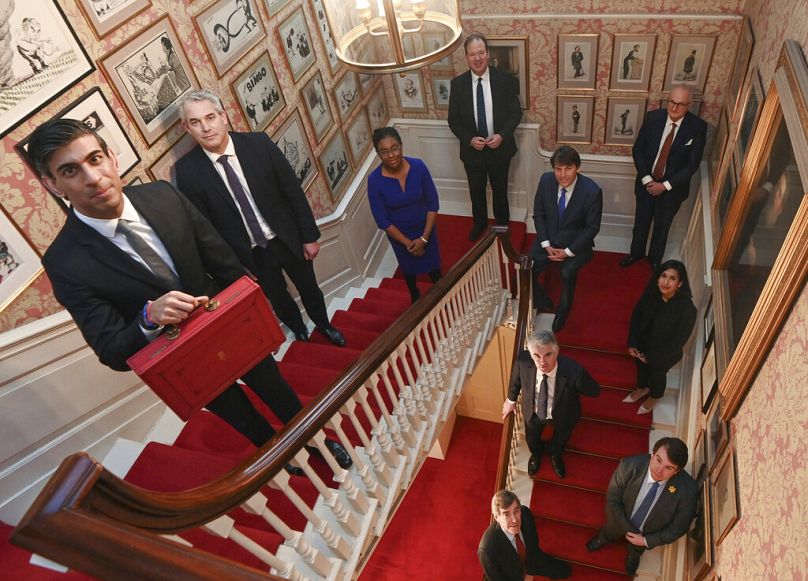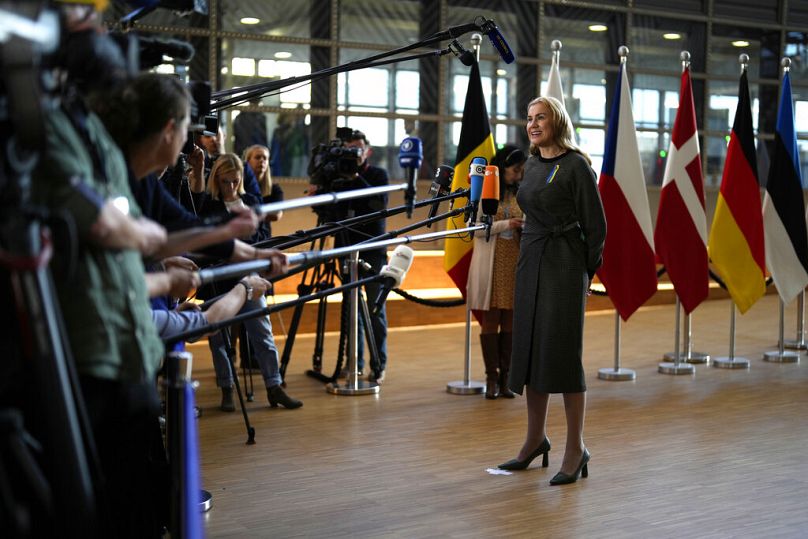There’s nothing about taking the decades-old carbon stored in a tree and parking it belowground that will deliver “negative emissions”, Dr Mary S. Booth and Elsie Blackshaw-Crosby write.
Bioenergy has been much in the headlines over the last year, especially regarding the reform of the EU’s rules for how burning forest wood qualifies as “renewable energy.”
 ADVERTISEMENT
ADVERTISEMENT
 ADVERTISEMENT
ADVERTISEMENT
It’s always been far-fetched to rely on burning trees — which emit more CO2 than coal when burned and take decades to regrow — as a way to “reduce” emissions.
But climate policy could be about to go further off-track with a new focus on biomass energy with carbon capture and storage, or BECCS, as a way to remove CO2 from the atmosphere (in climate-speak, achieve “negative emissions”).
BECCS is a prime example of how to waste money on a hopeless technology. The idea is to take CO2 emissions from burning biomass - which in the EU and UK is mostly derived from forests - concentrate it, and pump it belowground into geological formations.
The claim is that this process will suck CO2 out of the air. This holds an understandable appeal to policymakers, after all, who wouldn’t want to remove carbon from the atmosphere while generating electricity?
But do you see the problem? There’s nothing about taking the decades-old carbon stored in a tree and parking it belowground that will deliver “negative emissions”.
It might prevent emissions from entering the atmosphere, as carbon capture and storage can theoretically achieve if used with coal, but it’s not going to draw down atmospheric CO2 in a timeframe meaningful for climate mitigation.
In fact, promoting the logging of more forests will possibly increase CO2 emissions, because logging causes forest ecosystems to leak carbon.
Wishful thinking and cheque-writing
International carbon reporting rules confirm that BECCS using forest biomass won’t plausibly remove net CO2 from the atmosphere in line with EU and UK 2050 “net zero” emissions goals, but policymakers, who are in a hurry to move the performance of climate mitigation along to the next act, are nonetheless rushing ahead with incentives for BECCS.
In the EU, the Renewable Energy Directive and the Carbon Removals Law both promote BECCS. Policymakers are already writing cheques, too, including (so far) €180 million in public funding to the Stockholm Exergi plant in Sweden that promises to remove 7 million tonnes of CO2 over ten years.
That’s nearly €26 per tonne of CO2 removal, but that's just a small fraction of more than €15 billion per year that the EU currently allocates in subsidies to bioenergy.
The numbers really pile up when you consider that the EU’s climate modelling is counting on around 250 million tonnes of CO2 removals per year by 2050 (about as much CO2 as is emitted by half the cars in the EU).
Yet at no point in this orgy of wishful thinking and cheque-writing has the EU conducted any critical assessment of whether BECCS can deliver any climate benefit at all - it seems to be a claim simply taken on faith.
In the UK, the story is much the same. Despite scientists and NGOs having bombarded the government with evidence that burning trees is increasing carbon pollution and harming forests; despite a government-commissioned study that shows the same thing, the UK government has published a Biomass Strategy that doubles down on biomass and BECCS.
In response, given the government’s failure to assess whether biomass and BECCS can actually contribute to climate action, we’ve filed a legal case to make them go back to the drawing board. We wonder if it’s time to file a similar case in the EU.
Large-scale state-level greenwashing
Policymakers don’t understand the science behind biomass and BECCS, and they’re easily led by promises from the biomass industry of miraculous climate solutions.
Both the EU and the UK have been warned by countless independent experts, the IPCC, and their own scientific advisors that burning forests for fuel isn’t “carbon neutral” and that BECCS fuelled by forest biomass won’t deliver negative emissions.
Yet the EU and the UK provide billions in subsidies for bioenergy per year, and are preparing additional massive funding packages for BECCS.
It’s state-level greenwashing on a large scale, telling the public that the government is reducing carbon pollution with new technology, all the while throwing taxpayer money at an expensive waste of time.
We’re all starting to see the consequences of the climate emergency. We don’t have time to waste on solutions that don’t deliver.
Carbon capture and storage technology may have some role to play in reducing emissions, but it cannot and will not provide the “negative emissions” that governments are claiming and relying on.
It’s time to drop the curtain on their current climate policy performance and focus on real, science-based solutions to reduce emissions.
Dr Mary S. Booth is Founder and Director of the Partnership for Policy Integrity, and Elsie Blackshaw-Crosby is Managing Lawyer of The Lifescape Project.
At Euronews, we believe all views matter. Contact us at view@euronews.com to send pitches or submissions and be part of the conversation.












